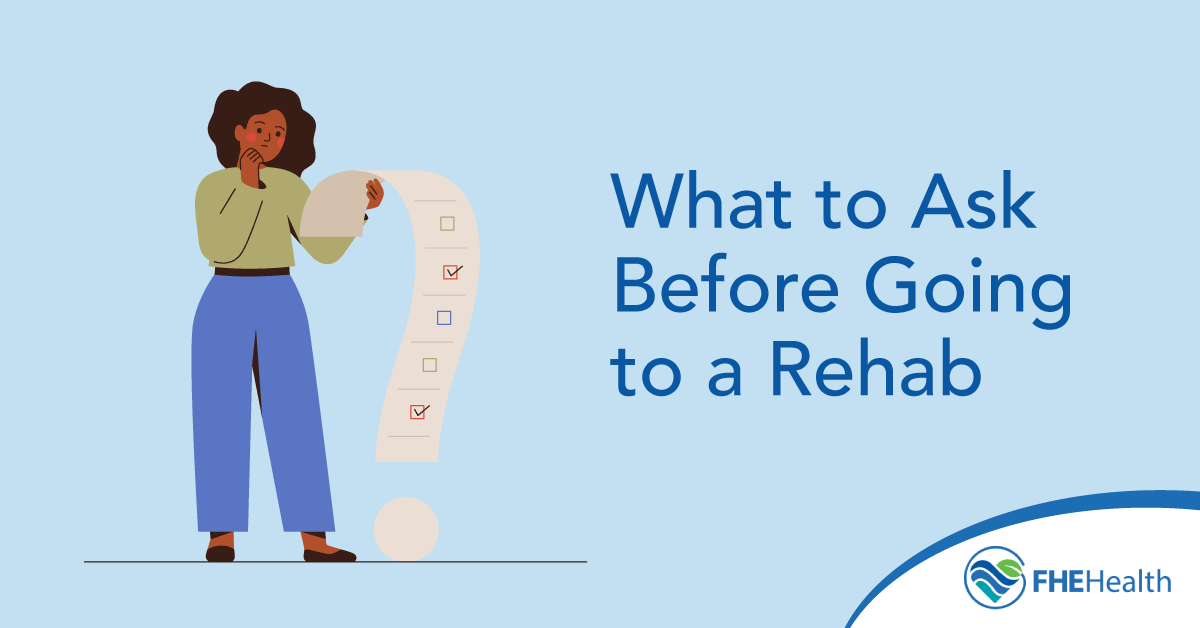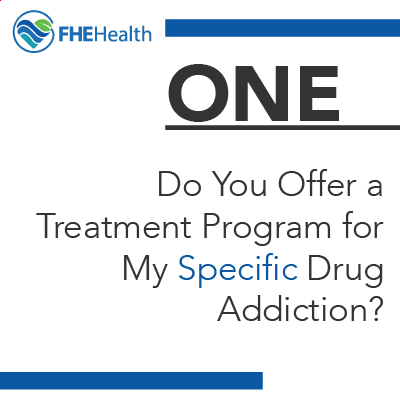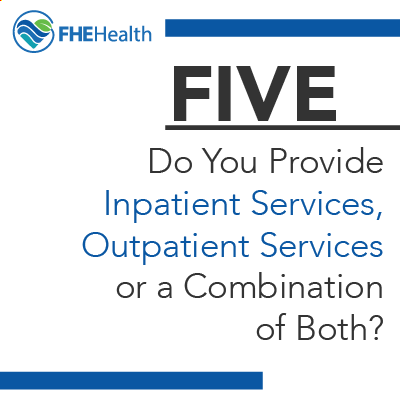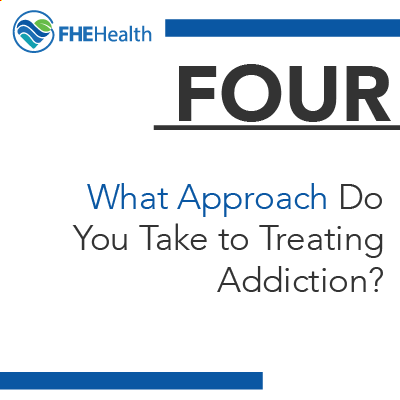
|
|
Approximately 16.5% of the population in the United States struggles with some type of substance abuse disorder, and only 13% of those individuals receive treatment for addiction. Part of the struggle to get adequate help is finding the right facility. Knowing what to ask a rehab center when you’re considering treatment is the first step toward successful recovery for you or your loved one.
With more than 17,000 facilities across the country, there are plenty of options to choose from. If you’re looking for a rehab center, it’s important to take your time to learn more about each facility by asking questions and connecting to the community.
Here are 10 questions to ask a rehab center before making that final decision.
1. Do You Offer a Treatment Program for My Specific Drug Addiction?
When choosing a rehab facility, be sure the facility provides treatment for your loved one’s specific drug addiction. Most addiction treatment centers have programs in place for heroin, cocaine, opiates and other major drugs. However, not all centers are capable of providing a high level of care for all drug users. Certain drugs require a specific medical detox, while others require none. Through our experience in treating a range of addictions, we recognize that there are patterns and similarities between drug use habits. Our structure of groups and educational classes is personalized to suit each drug-use pattern.
A great drug rehab center will offer treatment programs for all these types of drugs and more:
- Amphetamines
- Benzodiazepines
- Cocaine
- Crack cocaine
- Crystal meth
- Heroin
- Methamphetamine
- Opiates
- Sedatives
You can usually find out whether or not a rehab center has a treatment program in place that would benefit you by checking out their website. But you should also double-check with someone at the center when you speak with them.
2. How Do You Deal With Detox?
Upon a person’s admittance into drug rehab, staff members conduct a complete physical and psychological examination to gather needed information for treatment. Before the actual treatment begins, an individual must go through the detox stage, which clears all traces of drugs and alcohol from their system. The severity of the addiction will determine the intensity of the physical and psychological withdrawal symptoms during this initial stage.
Some people may detox from a drug within just a few days without too much of a problem, although this is rare. Most drug users will struggle through the detox stage, and some will even suffer potentially life-threatening withdrawal symptoms that could put their health at serious risk.
Because of this, it’s incredibly important for a rehab center to create a customized detox plan for each person. The plan should include access to medical professionals who can intervene to make the process go as safely and smoothly as possible. Ideally, the rehab center should have a 24-7 medical team ready to spring into action at the first sign of trouble during detox. Otherwise, potential problems may arise if detox doesn’t go according to plan.
3. Is Dual Diagnosis Something That’s on Your Radar?
Do you suspect you might be dealing with a mental health issue in addition to a drug addiction problem?
This is a lot more common than you might think. Approximately 21.5 million adults in the United States have a co-occurring disorder. Individuals who fall within this category have any combination of mental illness with a substance abuse disorder, which is also referred to as a dual diagnosis. In some cases, substance abuse is a result of a mental health condition as individuals seek relief for their condition.
Some rehab centers specialize in treating dual diagnoses and do their best to look out for them, while others will only treat substance abuse problems without delving too deep into mental health issues. Checking into the latter could prevent an individual from getting adequate help to overcome the addiction.
See how a rehab center plans to handle the possibility of a dual diagnosis before agreeing to the program.
4. What Approach Do You Take to Treating Addiction?
Every drug rehab center has a unique philosophy it uses to offer treatment to those dealing with drug addiction.
Some rehab centers take a whole-body approach to treating a person working their way through addiction. They’ll rely on everything from acupuncture sessions to nutrition changes to try to help individuals fight back against addiction.
Other rehab centers put more of an emphasis on religion and attempt to use it to treat addiction. Patients spend time in prayer and study spiritual teachings as they strive to beat drug addiction.
There’s no right or wrong approach to dealing with drug addiction, but some methods work better for certain people than others.
5. Do You Provide Inpatient Services, Outpatient Services, or a Combination of Both?
Is round-the-clock treatment needed to overcome the battle with drug addiction?
If so, it’s important to choose a rehab center that offers inpatient services. In an inpatient program, an individual will spend every second of every day in the center working on overcoming addiction. Treatment typically involves therapy sessions and learning new life skills and coping mechanisms.
But inpatient programs aren’t the only option for substance abuse treatment. Outpatient programs provide a safe and caring environment for 5 to 8 hours per day. Individuals may spend 3 to 5 days per week at the center. Treatment includes support groups, meetings with counselors and other healing activities, such as massage, exercise and adequate nutrition.
Additionally, some rehab centers combine inpatient and outpatient services. Depending on the severity of the condition, an individual may stay at the center 24-7 for a few days or weeks before moving over to more of an outpatient routine.
Some people need inpatient care and others get by without it. It all depends on the level of addiction and how well the person responds to treatment.
6. How Long Do Your Drug Rehab Programs Last?
Both inpatient and outpatient programs last for a specific period of time. Most programs last 4 to 5 weeks, while others may extend up to 60 or 90 days.
Because treatment time varies, it’s important to ask about the duration of the program before committing to it.
7. What Will the Atmosphere Be Like in Your Rehab Center?
All rehab centers have a very distinct feel. Some have the look and feel of a hospital, while others provide a resort-like experience. Choosing one with a comfortable atmosphere is important for several reasons. A comfortable environment promotes healing and reduces stress and anxiety, making it easier to heal. A positive atmosphere also fosters an atmosphere for trust and can boost an individual’s mood and mental well-being.
Pay the facility a visit before making the decision to enroll. Be sure to get a feel for the staff and community to ensure it’s a good fit.
8. Who Will Be Working With Me Regularly?
While location and surroundings may play an important part in recovery, the people inside the rehab center, not the building itself or its surroundings, will ultimately determine how successful the program is.
The rehab center should employ professionals who know how to help addicts cope with their drug addiction and work their way through it. A great rehab center should have:
- Detox specialists
- Psychiatrists
- Medical doctors
- Social workers
- Dieticians
- Case managers
When choosing a community for your loved one, make sure you speak with a rehab center’s admissions director (another important person every rehab center should have) and learn about the employees and the type of experience and certifications they hold. Experienced professionals have extensive knowledge of addiction and recovery processes. They can provide evidence-based treatments tailored to individual needs.
9. Are Your Services Covered by My Health Insurance Plan?
This is one of the most important questions you’ll have to ask at a rehab center. Ask what type of insurance plans the facility accepts or if the community accepts payment plans.
Because drug addiction has become such a big issue in America, more health insurers are providing people with coverage for rehab. However, some plans fail to cover mental health treatment. If this turns out to be the case, don’t despair. There are lots of rehab centers that can set up a payment plan or offer financial assistance to cover some or all of the costs of treatment.
Explain your situation to the admissions director at a rehab center and see what kind of solutions they can offer. There should be some options to try if your loved one’s insurance plan doesn’t cover drug rehab.
10. How Successful Has Your Center Been With Treating Others in the Past?
 If you’re considering checking your loved one into a rehab center, you could probably use some inspiration. It would be nice to hear stories of individuals who entered rehab and completed the program successfully.
If you’re considering checking your loved one into a rehab center, you could probably use some inspiration. It would be nice to hear stories of individuals who entered rehab and completed the program successfully.
Just about all drug rehab centers will boast about how successful they’ve been at treating others. But push them to give specific examples of how they’ve helped others in your community.
In a perfect world, they should be able to provide stats on how many people have come through their doors and successfully kicked a drug habit. But at the very least, they should be open to discussing some of their biggest success stories.
This will offer hope and show you which rehab centers are the most committed to seeing their patients succeed. At the end of all this, you should be ready to pick the facility that will help turn your loved one’s story into a successful one.
What to Ask a Rehab Center to Get Started Today
Searching through drug rehab centers can be a little bit overwhelming at first. There are so many out there that it can be tough to narrow your search to just a few top contenders.
Knowing what to ask a rehab center should help you cut out the fat and find a few centers that sound best to you. From there, you can take a closer look at them before settling on the one you want to use to help your loved one get over their drug addiction once and for all.
If you or a loved one is ready to start the journey to recovery, contact FHE Health to speak to one of our counselors. We provide details on our treatment options and guide you through the enrollment process.










